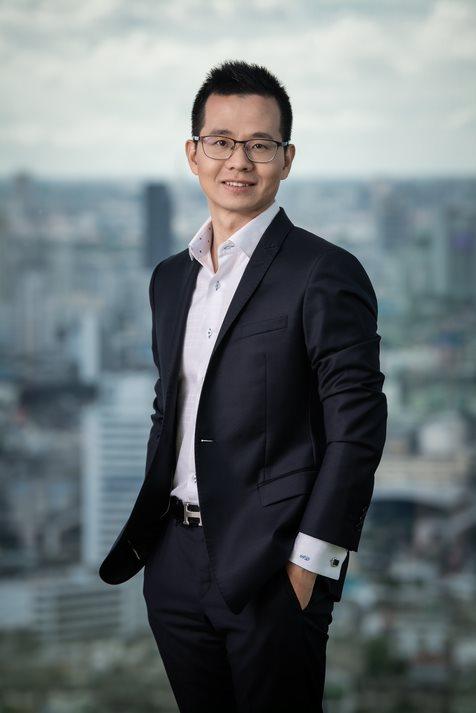
Global tech powerhouse Huawei Technologies expects Thailand's 5G usage will gather steam next year with the 5G adoption reaching 16% of the country's population while the company could help produce 100,000 tech talents in the country by 2023 as part of the push to drive the digital economy.
According to a survey by the Office of the National Digital Economy and Society Commission (ONDE), the ratio of the respondents who engaged in e-commerce activities rose from 37% to 76% between 2020 and 2021.
The ratio of those engaged in remote work surged from 17% to 30% and the proportion of companies using cloud services increased from 25% to 70%, making digital technologies a vital foundation for the economic drive.
5G POWER
Thailand is in the lead position for 5G adoption and infrastructure in Asean with 4.2 million 5G-based consumers and embracement of 5G technology among various industries, according to Huawei.
The National 5G Committee has ushered in 12 projects for 5G development and supports 5G usage in the Eastern Economic Corridor (EEC) covering 10,000 factories.
5G coverage rate in the EEC has exceeded 70% and Bangkok was ranked among the top 10 global cities for 5G adoption by the GSM Association (GSMA), a non-profit global organisation of mobile operators.
"The number of 5G users in other Asean countries combined is still less than that of Thailand," Abel Deng, chief executive of Huawei Technologies Thailand, told the Bangkok Post.
"If this momentum continues, the 5G adoption rate could reach 16% of consumers while early adopters, innovators and industries will make 5G adoption take off and reach the level of diffusion of innovation," he said.
He acknowledged that the 5G adoption in Thailand is two times faster than the country's 4G adoption.
"We will see more innovations driven by 5G tech convergence with the Internet of Things [IoT], artificial intelligence [AI] and cloud computing," Mr Deng said.
The convergence of these technologies is expected to push the country's digital economy to account for 30% of GDP by 2030.
In China's steel factories, three workers handled one crane but after 5G adoption with remote control, just one worker is now able to deal with three cranes. This increased productivity by nine times.
For Huawei factories, 5G is connected with 500 machines and robots for smart production, which could save on human resources costs by 80%, improve productivity by three times and increase production quality by 95%.
Huawei has three data centres in Thailand, which can go in line with practices stipulated in the Personal Data Protection Act.
The 470-million-baht third data centre is projected to be commercially operating this month.
Mr Deng said Huawei has 3,000 employees in Thailand, 88% of whom are Thais and 85% of whom are engineers. Currently, Huawei's cloud services cater to 700 customers.

Mr Deng says that 5G adoption in Thailand is two times faster than the country's 4G adoption.
DIGITAL TALENTS
According to Mr Deng, the pandemic has accelerated digital transformation 5-7 years faster than normal globally and digital-related technologies have become the foundation to drive the country's competitiveness and economic growth.
With the need for digital transformation, firms have to seek skilled workers to meet the challenges brought about by the rise of the digital economy.
A huge dearth of digital talent is still evident across Asia-Pacific, including Thailand.
Research by global organisational consulting firm Korn Ferry found that Asia-Pacific will face a labour shortage of 47 million people by 2030 and an annual opportunity cost of US$4.24 trillion. This requires policymakers and public and private partnership to boost digital talent.
Huawei has a goal in Thailand for digital talent development with efforts to shape up 100,000 digital workers by 2023, mainly in 5G, cloud, AI, big data and blockchain technologies.
From 2019 to today, Huawei has supported training for 40,489 people.
As part of the plan to achieve the goal, Huawei is proceeding with its Seeds for the Future programme in which the company selects top university students to receive technology and cultural training.
Mr Deng said the project was initiated in Thailand in 2008 and has become the company's global CRS programme covering 131 countries around the globe with 9,000 students and 500 universities.
In the past 13 years, over 215 Thai students have attended this programme.
Huawei recently embarked on Seeds for the Future 2.0 programme with a plan to invest $150 million in digital talent development over the next five years to benefit three million people globally.
In Asia-Pacific, the company sets a plan to invest $50 million to cultivate 500,000 digital talents.
The firm has the Huawei Asean Academy, a branch in the EEC area as well as 5G Ecosystem Innovation Centre in Thailand, which can help reskill and upskill ICT professionals and small and medium-sized enterprises through its partners, including key related ministries, universities and vocational schools.
To outline the future trends for intelligence world, Huawei will hold the "Powering Digital Thailand 2022: Huawei Cloud & Connect Asia-Pacific Innovation Day" seminar from Nov 17-19 at Centara Grand & Bangkok Convention Centre at CentralWorld.